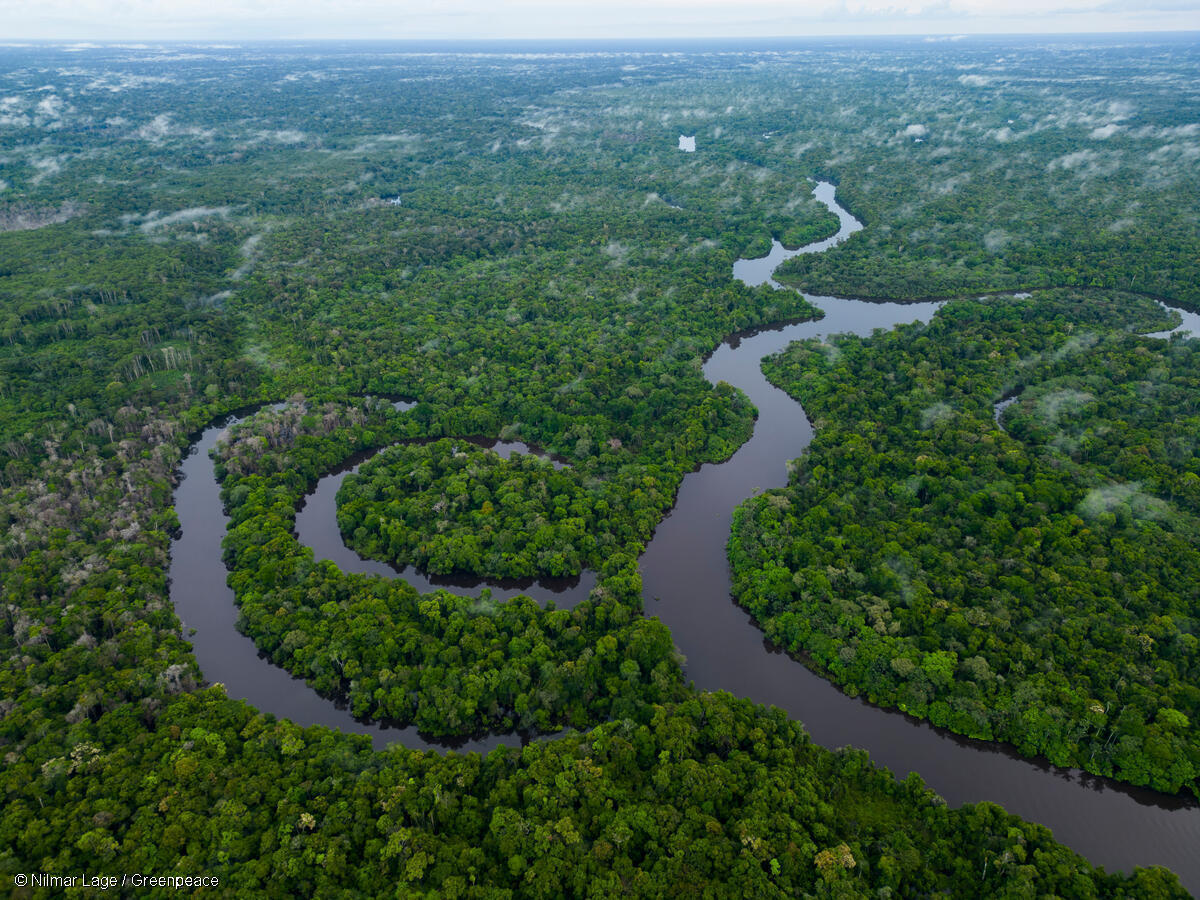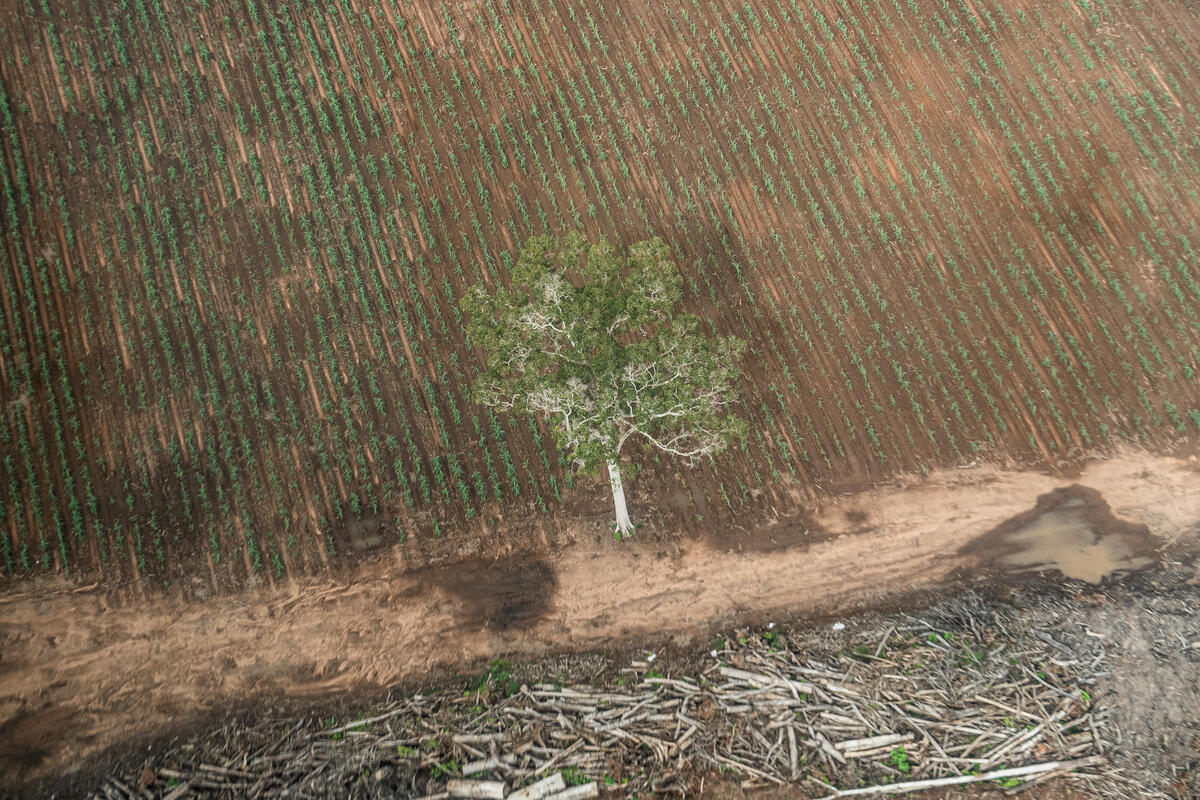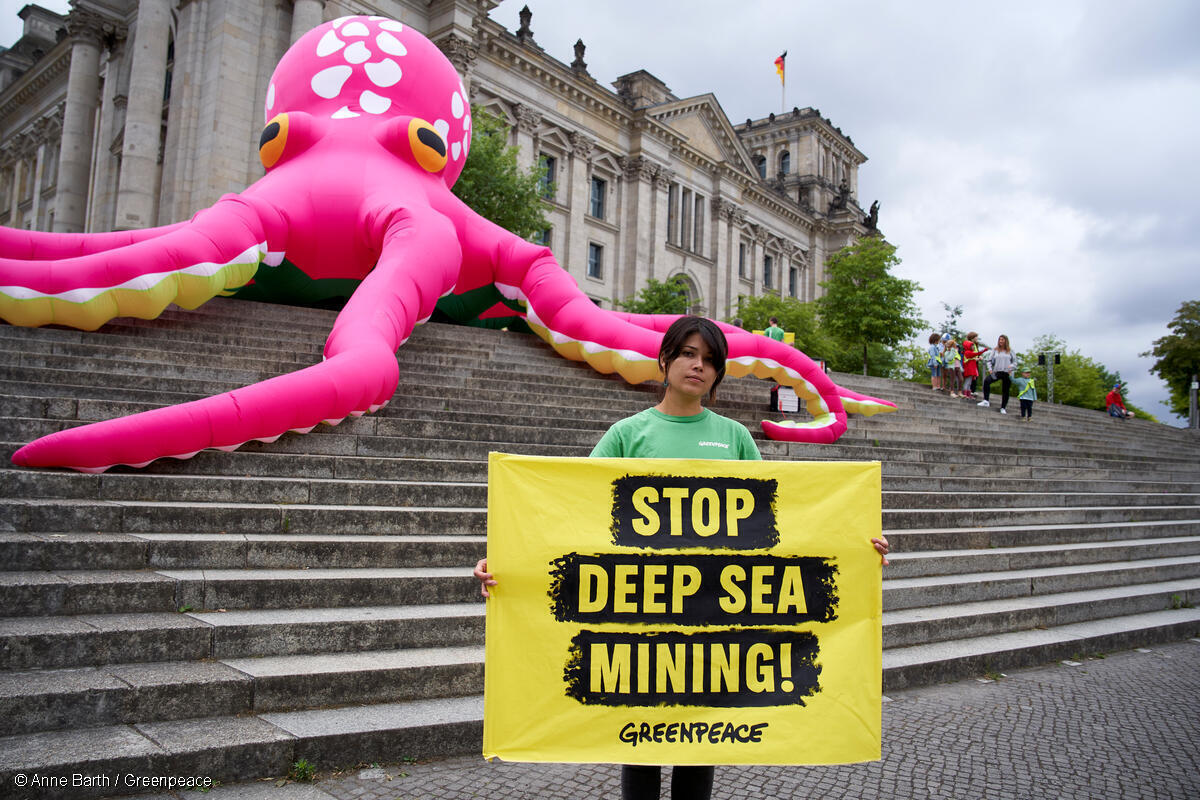In advance of climate strike, Greenpeace demands a fossil-free FDC
Luxembourg, 28 February 2022 – In the most comprehensive assessment of climate impacts yet, the Working Group II report from the Intergovernmental Panel on Climate Change (IPCC) delivered their latest scientific assessment to world governments today. [1] The report shows the severe impacts of climate change on ecosystems and people around the world. Climate change is affecting human rights, such as the rights to life and health, to food, water and housing. Given the urgency of the results, Greenpeace demands more ambitious efforts to cut Luxembourg’s greenhouse gas emissions. All sectors of the economy, including financial actors and public institutions like Luxembourg’s sovereign pension fund FDC, must assume their responsibility.
The IPCC report summarises the latest scientific understanding on impacts, adaptation and vulnerability, outlining how climatic hazards and risks will increase with warming. It is the latest in a series of reports that have warned of the threat of climate change against the survival of humanity and the planet since 2014. Yet, governments, corporations and financial actors have failed to take the necessary, urgently needed action to remedy the climate emergency unfolding before our very eyes.
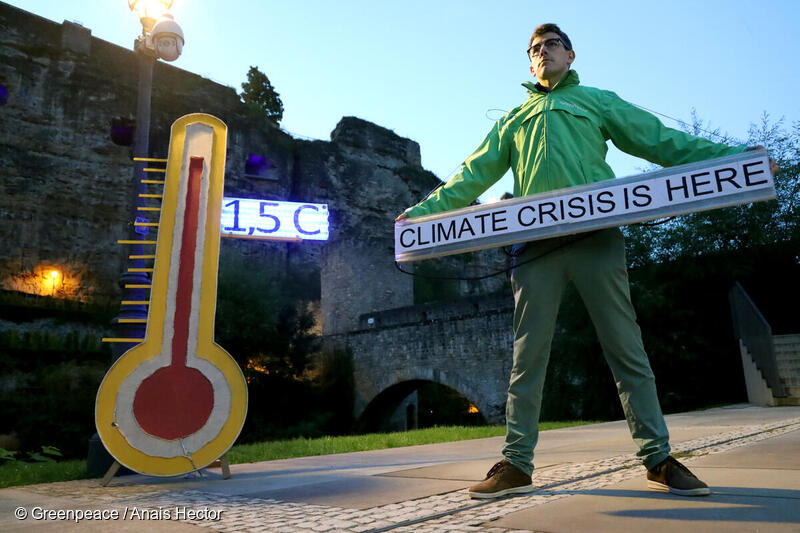
“The new IPCC report reinforces the global standard that climate protection is a human right,” said Myrna Koster, Climate Justice Campaigner at Greenpeace Luxembourg. “Governments, corporations and financial actors have no choice but to act in line with science to meet their climate and human rights obligations.”
Last year, Luxembourg was elected to the United Nations Human Rights Council (UNHRC) for the 2022-24 term. The same Council has declared in October 2021 that having a clean, healthy and sustainable environment is a human right [2]. As a member of the UNHRC, the Grand Duchy must respect all aspects of the human rights it vouched to uphold, including mitigating the effects of the current climate emergency. Not only does it need to address the country’s direct emissions; Luxembourg must also deal with the fact that its financial centre contributes significantly to the global climate emergency via the financing of unsustainable companies. Even public institutions like the sovereign pension fund FDC (Fonds de Compensation) continue to invest in fossil-fuel and other climate-damaging industries – this despite the fact that 49% of the Luxembourg population consider climate change to be the single most serious problem facing the EU today. [3]
Over the coming months, the FDC will review its investment strategy for the period 2023-2028. For Greenpeace, it is imperative that the FDC Board of Directors should use this opportunity to decide to phase-out fossil fuel and other high-carbon investments in order to align the fund’s investments with the objectives of the Paris climate agreement.
“It’s simply unacceptable that a sovereign fund like the FDC takes the money of private citizens and invests it in dirty assets without their knowledge or consent,” said Martina Holbach, Climate and Finance Campaigner at Greenpeace Luxembourg. “Minister of Social Security Claude Hagen and the FDC board members must finally assume their responsibility toward society and the environment by putting an end to investing public money in climate-damaging industries.”
Greenpeace Luxembourg demands that the FDC aligns all its investment activities with the objectives of the Paris Agreement in its upcoming strategy review, i.e. limiting global warming to 1,5° C maximum. Given the catastrophic environmental impacts, the financial risks associated with investing in fossil fuel companies, and the fact that alternative investments are in most cases just as – or even more – profitable than investments in fossil fuels, there is no legitimate reason for the FDC to continue its harmful practices. In fact, the number of major investment funds divesting from dirty energies is increasing around the world, including the EU’s biggest pension fund ABP, Danish pension provider ATP, and many others. [4]
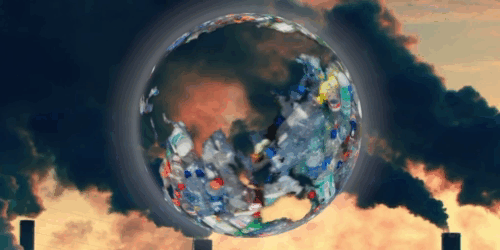
“Increasingly, people around the world are urging governments, corporations and financial actors to take consequent action,” said Myrna Koster. “On 25th March, Greenpeace Luxembourg will join Youth For Climate and climate activists from all over the country in taking to the street to protest the ongoing inaction of the FDC board of directors and members of the government. The time to act is now!” [5]
Notes:
[1] The Working Group II contribution to the IPCC Sixth Assessment will be followed by the contribution of the Working Group III in April, which will assess ways to mitigate climate change. The full story of the IPCC Sixth Assessment Report will then be brought together by the Synthesis Report in October.
[2] United Nations, Resolution adopted by the Human Rights Council on 8 October 2021
[3] Special Eurobarometer on the Future of Europe, Future of Europe: Europeans see climate change as top challenge for the EU, 25 January 2022. In addition, according to a recent survey conducted by TNS Ilres on behalf of Greenpeace, 47% of the country’s population does not agree with the FDC investing into fossil fuels.
[4] For more examples, click here.
[5] The climate strike will take place Friday, 25th March 2022, at 2pm at Place de Clairefontaine. More information available here.

